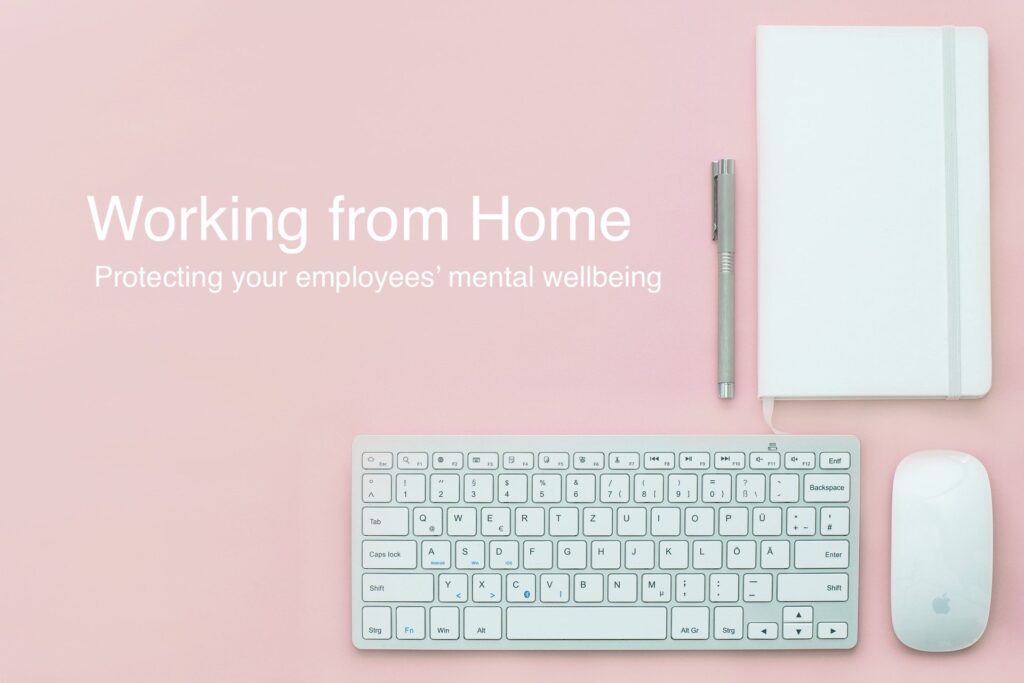With the Government recommending those that can, work from home, it is important to note that this is not an ideal situation for everybody. While some will relish the autonomy, and the freedom of ditching the daily commute, for others working from home can put their mental health at risk. They may experience feelings of isolation and disconnection, leaving them with low mood. Conversely, they may feel pressure to “to appear busy” or to be online throughout the working day, causing stress. Put simply, working from home doesn’t work for everyone.
So, what do the experts recommend?
- Provide advice about technology and then set the parameters that it’s OK to take time away from the screen
- Let people know they should set up a “work zone or space” and not the sofa!
- Encourage “self- care time” for meditation or exercise.
- Hold a team video call or other group telephone call for 20 minutes each morning at 9.00am. Seeing your co-workers is a boost and just to know “you are all in it together” helps.
- Encourage your employees to take regular breaks, and not to work outside their normal office hours.
- Recommend no emails or instant messages before 10am so that people can get their heads into work mode before they get distracted by a stream of questions and communications.
- If you are not paperless then allocate times when specific employees can come to the office to collect and return documents, so that they can stay in self-isolation mode.
- Let people come into the office alone if they need a day away from home – this may be particularly important for parents of school-aged children!
- Send your employees gifts and treats from time to time – such as online gift cards – to let them know they are appreciated and valued.




